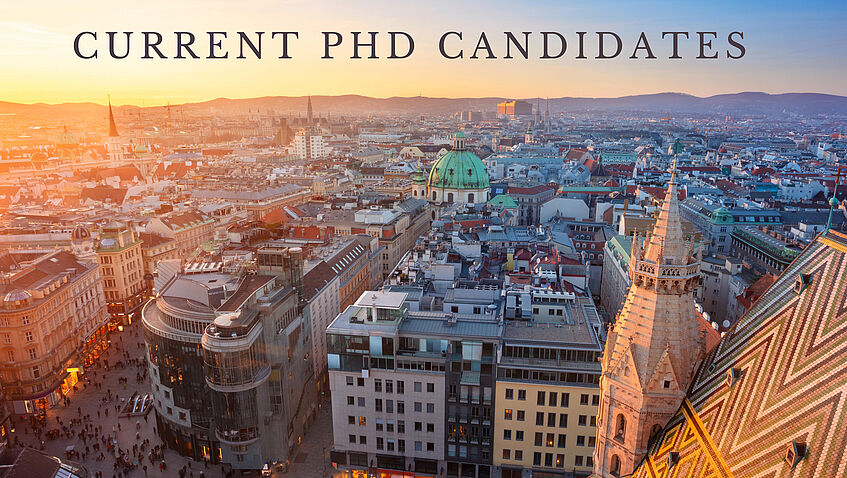
Aleksandar Anđelović
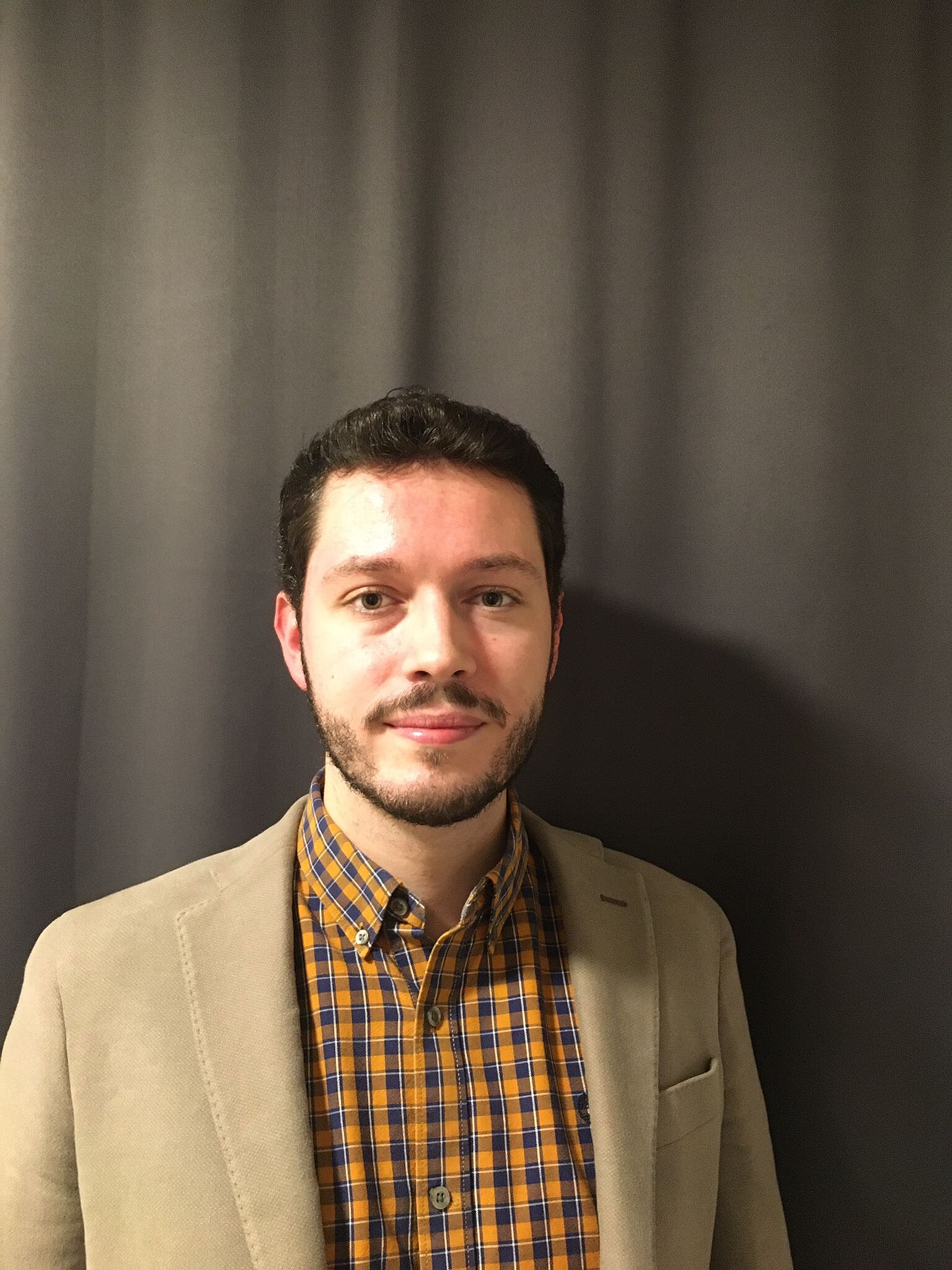
Aleksandar Anđelović
Aleksandar is a classical philologist and Byzantinist. He received his BA and first MA degree in Classics from the University of Belgrade in 2016 and 2018 respectively and in 2021 he obtained his second MA degree from the Department of Medieval Studies at the Central European University in Budapest and Vienna. At CEU he also received an Advanced Certificate from the Center of Religious Studies. He studied Modern Greek in Athens and Thessaloniki, and has actively participated in conferences with Byzantine topics in Croatia, North Macedonia, Slovenia, England, and Romania. Currently, alongside his PhD studies, Aleksandar is a prae-doc research assistant on the ERC-project RELEVEN.
Aleksandar's research is titled, Crossing Discursive Boundaries: Education and Learning in Michael Psellos' Orations and Letters to Patriarchs and Monks (1050-1078).
Aleksandar’s PhD research project aims to offer a thorough investigation of the role of learning and education, both secular and religious, as perceived and employed in the letters and orations of a prominent Constantinopolitan intellectual Michael Psellos within a wide network of Christian literati in eleventh-century Byzantium.
Liam Downs-Tepper
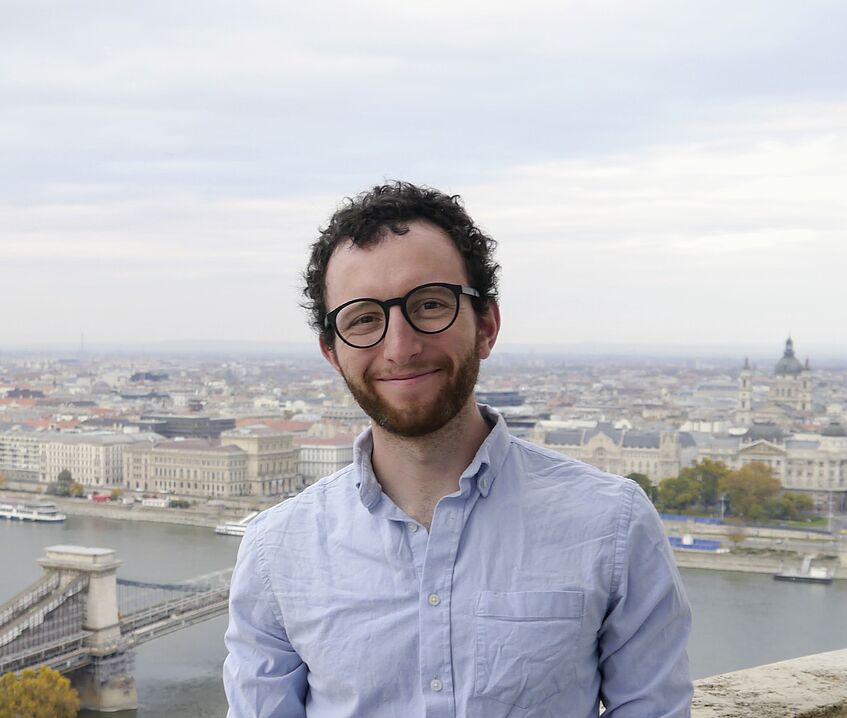
Liam Downs-Tepper
Liam holds a BA in History from Macalester College in St. Paul, Minnesota as well as an MA in Medieval Studies from Central European University in Vienna, Austria. He began his PhD program in Summer 2023 and his current topic of study is The Geospatial Logic of Fortified Churches. Fortified Churches combine the civilian aspects of religious buildings with the military design of a defensive structure. They can be found across Europe - built to defend against a variety of threats and enemies. This project aims to find commonalities between different types of Fortified Churches, as well as aiming to determine what makes a specific location optimal for a fortified church.
Emily Genatowski
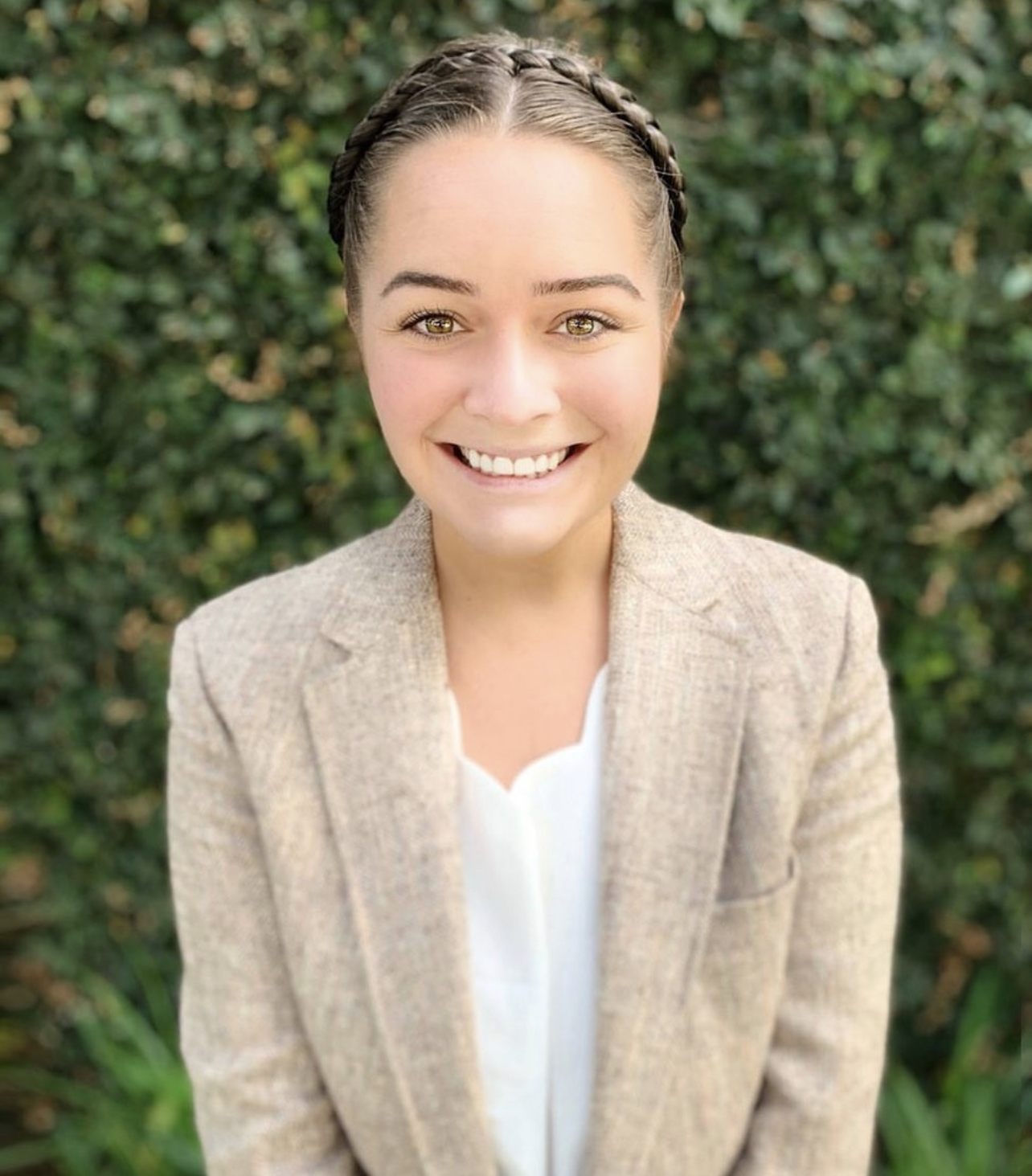
Emily Genatowski
Emily is a graduate of Harvard University and Columbia University. She holds a bachelors in History and a masters in Museum Studies. Emily worked at Google as the coordinator of Google Arts & Culture in North America and held positions on the digital teams of the Smithsonian Institute, The Frick Collection and The Jewish Museum. Emily founded the course Art Digitization at Christie's Education and has enjoyed lecturing at Universities and Programs across the US and Europe.
Emily's PhD research is titled Historiography: Using Open Source Intelligence and Data to Record History
Emily's project will explore how methods of contemporary historiography can be adapted to the information age through the extraction and analysis of data and how claims made by governments can be substantiated or refuted by investigative journalists and citizen collectives using open source intelligence. These methods, benefiting both journalism and academia, will provide a more truthful, just and egalitarian record of our time and combat weaponized disinformation campaigns that have divided our geopolitical landscape. By relying on data corroboration as opposed to reporting narrative accounts alone, a more equitable distribution of sources can be established in the search for truth which will cease to prioritize voices which uphold the advantages of those in power.
Elisabetta Magnanti

Elisabetta Magnanti
Elisabetta Magnanti is a University Assistant and Doctoral Candidate in the Department of History at the University of Vienna. Her research specialises in early medieval England and in the application of computational methods to philological and historical analysis of Old English source material. Previously, she was ingénieur d'études at the French National Centre for Scientific Research (CNRS) in Paris.
Elisabetta's PhD research is surrounding The 'Northern Recension" of the Anglo-Saxon Chronicle.
Elisabetta's current research topic examines the 'Northern Recension' of the Anglo-Saxon Chronicle.
Mart Makkink
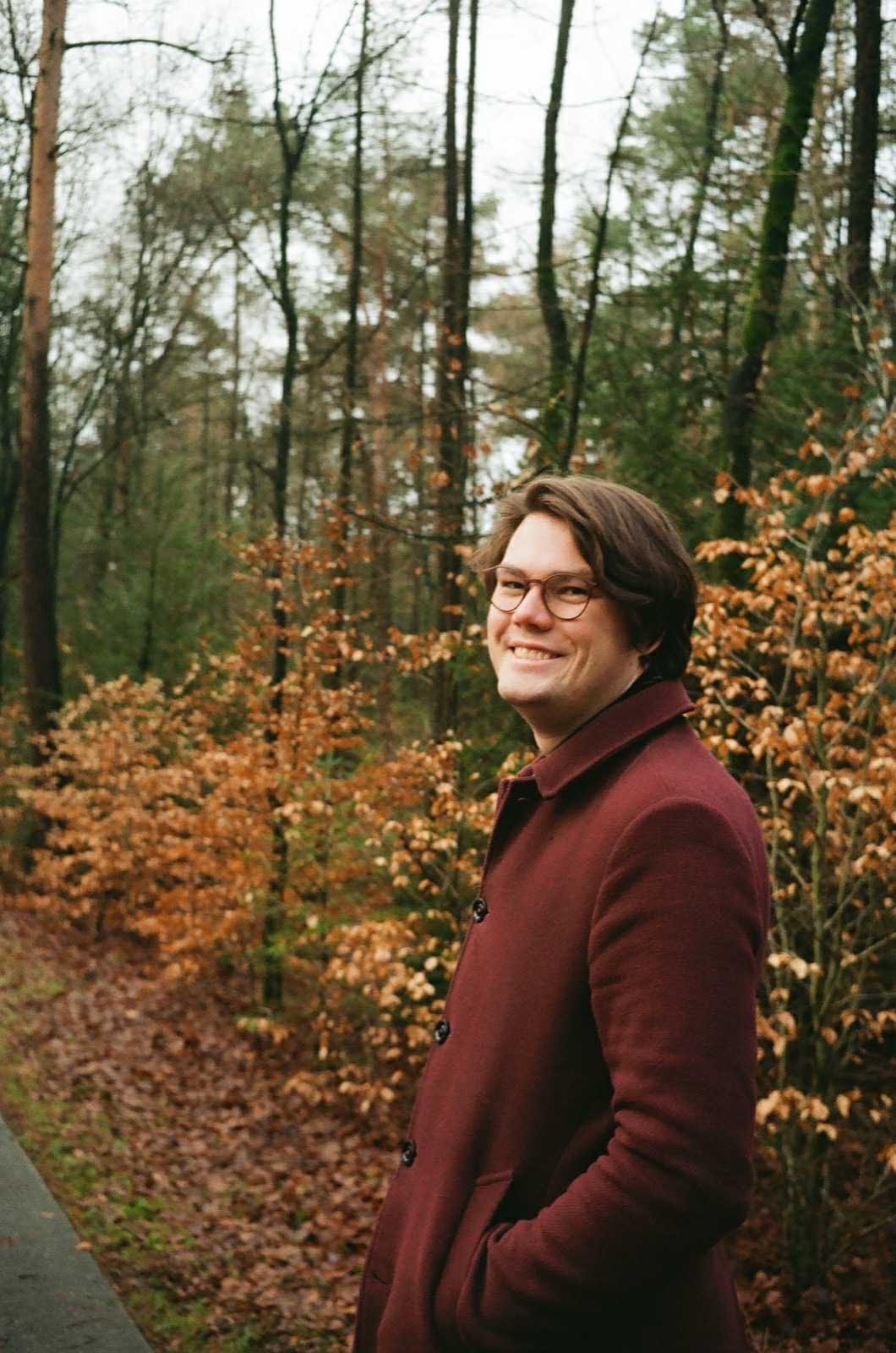
Mart Makkink
Mart holds a BA in History (2015-2020) and an MA in Digital Humanities (2020-2021) from the University of Groningen as well as an MPhil in Medieval Studies (2021-2022) from Trinity College Dublin. His research specialises in the study of political culture in the Western Early and High Middle Ages using digital and computational methods.Since the fall of 2023 he has been working on his PhD project at the University of Vienna where he will analyse the development of the conceptualisation of ethnic identity in the historiography of the post-Carolingian West using computational methods.Previously, Mart worked as a Research Assistant for the ERC Synergy 4-OCEANS project and as a Technical Assistant on the SFI-IRC Pathway Early Irish Hands project, both at Trinity College Dublin.
Lewis Read

Lewis Read
Lewis completed his undergraduate degree in Medieval History at the University of St Andrews in 2019 and remained in St Andrews to study for an MLitt in Middle Eastern History and Arabic, which he completed in 2020. Lewis’ research specialises in medieval Armenia from the fifth to eleventh century and explores the use of digital tools for the study of Armenian manuscripts.
Lewis is currently a doctoral candidate at the University of Vienna and a project researcher on RELEVEN.
Lewis' PhD research is titled, Turkish Encounters and Reflections on Eastern Rome: Armenians in the Eleventh Century
Working with Armenian source material from the eleventh century, Lewis' PhD thesis examines Armenian-Turkish interactions from 1045 to 1099. As part of his doctoral research, Lewis is also working on a digital edition of eleventh-century Armenian colophons.
Anahit Safaryan
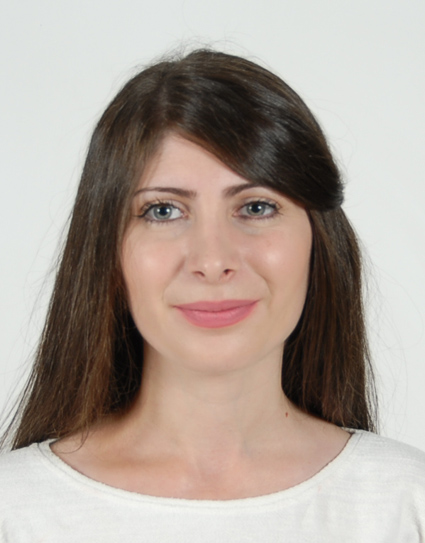
Anahit Safaryan
Anahit Safaryan did her BA in History (2009-2013) and MA in History (2013-2015) at Yerevan State University. She started her doctoral studies at the University of Bern (2015-2017), where she was also employed to work on the SNSF project. In 2017, together with the project itself, Anahit moved to the University of Vienna to continue her doctoral research, which focuses on the topic of the 17th-early 18th cc. Armenian historiography.
Anahit's PhD research is titled, The use of Armenian historiographical discourse in the development of the Armenian ethnic consciousness in the 17th and early 18th centuries.
Anahit Safaryan's PhD thesis focuses on the 17th-early 18th cc. Armenian historiographical discourse and its relations to the development of Armenian ethnic consciousness.
Michela Vignoli
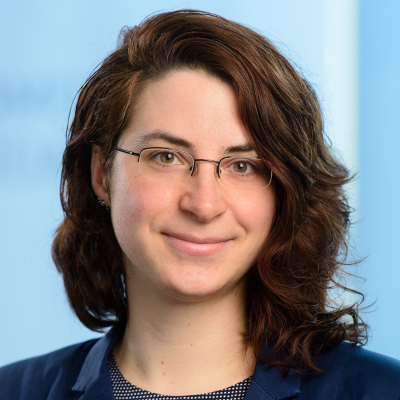
Michela Vignoli
Michela Vignoli is PhD candidate at the University of Vienna, and data scientist at AIT Austrian Institute of Technology. During her research career at AIT, she contributed to various DH and open science projects as well as to related publications. In 2020 Michela started her specialisation in applied Artificial Intelligence (AI) and Machine Learning (ML) for supporting reasoning and argumentation in social sciences and the humanities. In 2022 she started her PhD in Digital Humanities at the University of Vienna. From 2016-2020 she was nominated member of the EU high-level advisory group Open Science Policy Platform.
Her most recent publications include: M. Vignoli, D. Gruber, R. Simon, Revolution or Evolution? AI-Driven Image Classification of Historical Prints. DH 2023 Collaboration as Opportunity (under review) K. Achenbach, M. Błaszczyńska, S. De Paoli, F. Di Donato, S. Dumouchel, P. Forbes, P. Kraker, & M. Vignoli. Defining discovery: Is Google Scholar a discovery platform? An essay on the need for a new approach to scholarly discovery. Open Research Europe, 2, 28, 2022. DOI: dx.doi.org/10.12688/openreseurope.14318.1 M. Vignoli, J. Rörden, D. Wasserbacher, S. Kimpeler, An Exploration of the Potential of Machine Learning Tools for Media Analysis to Support Sense-Making Processes in Foresight. Frontiers in Communications, 7, 2022. DOI: dx.doi.org 10.3389/fcomm.2022.750614 T. Ross-Hellauer et al., Ten simple rules for innovative dissemination of research. PLoS Comput Biol 16(4), 2020: e1007704. DOI: doi.org/10.1371/journal.pcbi. 1007704
Michela's PhD Research is titled Exploring AI-Driven Text-Image Relation Analysis in Historical Sources.
The goal of this doctorate is to develop an interdisciplinary methodological framework for AI-driven analysis of text-image relations in large, digitised historical data corpora. The focus is to discuss the added value as well as the limitations of AI-supported methods in historical research. Moreover, this dissertation will explore to what extent research questions related to the history of knowledge, which are predominantly qualitative in nature, can be supported by computational (i.e., quantitative) approaches. The method will be developed on the example of a heterogenous corpus of travelogues from 1501-1850 in multiple languages, which contain western representations of Ottoman “nature” in text and image. This work is funded as part of the FWF project no. P 35245-G ONiT: Ottoman Nature in Travelogues. ONiT studies representations of nature of the Ottoman Empire in historical travel literature held by the Austrian National Library. The PhD project develops a methodological and technical framework for its automated analysis.
